| CAMPOS Faculty Scholars by Cohort | |
| 2024-2025 | 2023-2024 |
| 2022-2023 | 2018-2019 |
| 2021-2022 | 2016-2017 |
| 2020-2021 | 2015-2016 |
| 2019-2020 | 2014-2015 |
2024-2025
Vladimir Diaz-Ochoa
Assistant Professor, Pathology, Microbiology and Immunology
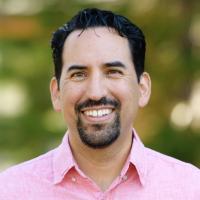
Diaz-Ochoa’s work seeks to understand the molecular basis by which susceptibility to pathogens as well as inflammatory pathologies are linked to NRAMP1 in humans and animals. He leverages both microbial and host genetic systems to uncover mechanisms of immunity and microbial pathogenesis during host-pathogen interactions. As a postdoc under Renée Tsolis at UC Davis, they developed an animal model that helped link the environment to blunted immune responses to bacterial infections. Diaz-Ochoa earned his BS in Biological Sciences in 2009 and his Ph.D. in Biomedical Science in 2015 from the University of California, Irvine. In 2020, he was a UC Davis Chancellor Postdoctoral Fellow. He has shown a vested interest in supporting equitable education. As a UC Davis Professors for the Future Fellow, he developed and implemented a program that recognized imposter syndrome, especially in minority participants.
Antonio Serapio-Palacios
Assistant Professor, Microbiology and Molecular Genetics
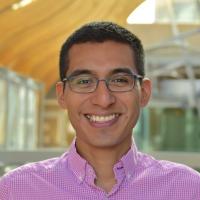
Serapio-Palacios’s research hones in on the role of bacterial effector proteins in manipulating cellular processes, particularly in the host-pathogen interface and interbacterial competition. He established a research program focused on host-pathogen interaction and the molecular mechanism that bacterial pathogens use to subvert host cell pathways. He also launched a research focus investigating how pathogens and commensal bacteria use sophisticated strategies to overcome bacterial competitors. Serapio-Palacios received his B.S. in Clinical Chemistry from the University of Veracruz, Mexico in 2009 and his Ph.D. in Cell Biology from the Center for Research and Advance Studies of the IPN, Mexico in 2016. He worked with Michael Smith as a Research Associate and Fellow at the University of British Columbia, Vancouver. In his postdoctoral work, he gained expertise and experience in understanding the impact of the microbiome on human diseases. He has extensive experience in mentoring students from diverse backgrounds as a Biology Undergraduate Diversity in Research (BUDR) Mentor. Serapio-Palacios will join UC Davis in 2025.
Rodolfo Urbano
Assistant Professor, Pathology, Microbiology and Immunology
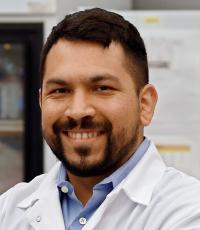
Urbano specializes in microbial-host interactions investigating the role of cytoskeleton proteins in the immune response to infection. His lab characterizes the functions of actin-binding proteins that are involved in limiting microbial dissemination. He studies how immune activation modifies the mechanical properties of cells to facilitate the capture and elimination of pathogens. Urbano graduated from the University of Washington with a Ph.D. in Microbiology. He then worked as a Postdoctoral Fellow at Yale University applying CRISPR-Cas9 gene-knockout methods to learn about host immunity. In 2019, he was awarded the Hanna H. Gray Fellowship from Howard Hughes Medical Institute.
Charles Wilkes II
Assistant Professor, School of Education
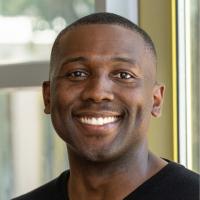
Wilkes’ research attends to the teaching and learning of Black learners in K-16 contexts. One strand of his research has focused on Black learners’ experiences in mathematics classrooms. A second strand of his research attends to how mathematics instruction supports the learning of mathematical content and the nurturing of positive mathematics identities for Black learners. The third and final strand of his research is supporting pre-service teachers’ and in-service teachers’ development of teaching equitable practices through interventions and professional development. Learn more about him here.
2023-2024
Daniah Beleford
Assistant Professor, Pediatrics and Physiology & Membrane Biology
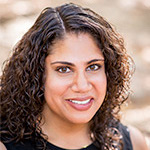
Dr. Beleford's research program within the Department of Physiology and Membrane Biology and Department of Pediatrics studies molecular genetic causes of vascular anomalies - disorders of arterial, venous, and lymphatic formation. Dr. Beleford's group is interested in genetic modifiers of rare vascular conditions such as Hereditary Hemorrhagic Telangiectasia and in clarifying molecular signals and interactions that cause vascular disease. The lab utilizes mouse disease modeling and basic molecular biology techniques.
Alexander Gamero-Garrido
Assistant Professor, Computer Science
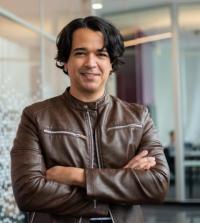
Gamero-Garrido's research focuses on the intersection of computer networking systems and public policy with an emphasis on online privacy. His work yields methodologies and analyses that provide empirical evidence on contentious questions in technology policy. He use conventional methods from both computer networking (large-scale Internet measurements) and the social sciences (surveys). Prior to joining UC Davis, he was a Ford Foundation Post-Doc Fellow at Northeastern University. Gamero-Garrido received his Ph.D. in Computer Science from UC San Diego in 2021.
Anne Iaccopucci
Assistant Professor of teaching, Human Ecology
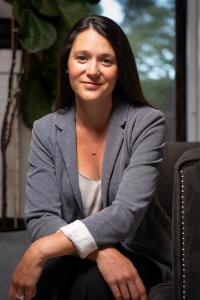
Iaccopucci comes to UC Davis with over 10 years of experience supporting the development of educators, children, and community-based programs in both formal and informal educational settings. Her work is grounded in developmental theory with interdisciplinary collaborations in the fields of education and public health. Iaccopucci has led curriculum development, program design, implementation, evaluation, and has taught for several educational institutions, including the University of Agriculture and Natural Resources and the California State University of Sacramento. Her award-winning mindfulness curriculum is used nationally to support healthy social-emotional development. Iaccopucci’s research interests include examining innovative educational models that may improve learning outcomes and positive behavioral changes. Specifically, examining educational methods that best support student access, engagement, and development of positive trajectories. Further, Iaccopucci is interested in exploring the impacts of institutional supports that promote student health and well-being on academic achievement, retention, and long-term positive outcomes.
Victoria Keeton
Assistant Professor, School of Nursing
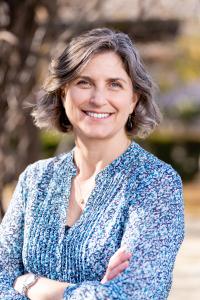
Victoria Keeton is a nurse scientist with a research focus on the social causes and health consequences of stress in caregivers and children, especially in Latinx families and communities of color who experience socioeconomic disadvantage. Specifically, she studies stress as a physiologic contributor to metabolic disease and emotional dysregulation, and mechanisms of maternal-fetal programming that may predispose children to metabolic or mental health conditions.
Dr. Keeton received a Bachelor of Arts in psychology at UC San Diego, a Master of Science in nursing at UC San Francisco, and a PhD in nursing and healthcare leadership at UC Davis. Following her doctoral training, she spent two years as a postdoctoral transdisciplinary research fellow with the UCSF California Preterm Birth Initiative. In addition to being a nurse scientist, Dr. Keeton is an advanced practice nurse with almost 20 years of pediatric clinical experience, primarily serving Latinx and under-resourced populations in urban community and school-based health settings. She is also an experienced nurse educator and is committed to increasing the number of Latinx-identifying scholars in nursing science, and to promoting diversity, equity, inclusion, and justice in all aspects of healthcare.
Felicity Muth
Assistant Professor, Neurobiology, Physiology & Behavior
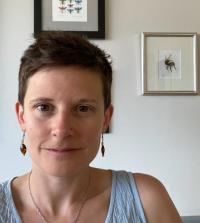
Muth is broadly interested in animal behavior and cognition, especially aspects of learning and memory that have a clear function in the natural world. Her lab works primarily with bumblebees, both in the lab and in the field. Originally from London, Muth carried out her undergraduate and PhD in Scotland at the University of Edinburgh and the University of St Andrews, working on nest construction in birds. After earning her PhD, she switched to working on bumblebee cognition in postdoctoral positions at the University of Arizona and University of Nevada, Reno where she was funded by L’Oreal for Women in Science , the AAUW and the USDA. Muth is a strong proponent of science communication in all its forms and recently wrote a children’s book on bee diversity - for more info see www.amievenabee.com. She has been interviewed on NPR’s Science Friday and on KUNR, talking about bee cognition and the challenges faced by women in science.
Maike Sonnewald
Assistant Professor, Computer Science
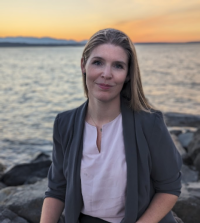
Sonnewald leads the Computational Climate and Ocean Group (www.compClimate.com). Her work targets grand challenges to improve ocean and climate understanding and resilience. Solutions to the challenges humanity, and the world, face are inherently interdisciplinary, and so is her lab. Sonnewald's interests include sea level, climate modes (such as the El Nino Southern Oscillation), basin-scale ocean dynamics, and biogeochemistry. Blending cutting-edge computational tools with Earth Science knowledge, she combines theory, observations, and numerics to pioneer methods and create insight. Sonnewald focuses on data mining, sparse data inference, and physics-driven machine learning, as well as generating fundamental insight into the climate and ocean system. Ultimately, she aims to improve long-range forecasts (weeks to months) and climate projections.
The impact of Sonnewalds' work spans academia and policy. It is featured in the NOAA AI strategy 2021-2025, and used in the science basis for New Zealand's Marine Protected Area legislation. She is cited by the European Parliament and the World Meteorological Organization. Her over 60 invited talks include the United Nations ITU, NOAA Research, and the DOE, as well as colloquia and major conferences. She is an Associate Editor for the 'Artificial Intelligence for the Earth Systems' (AIES) journal by the American Meteorological Society and has authored numerous review articles.
Martine Therrien
Assistant Professor, Molecular and Cellular Biology, Center for Neuroscience
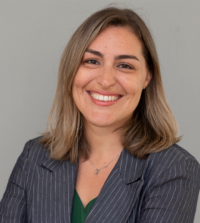
Microglia are the immune cells of the brain parenchyma. They are constantly sensing and responding to the brain environment. Several microglia states have been detected in neurodegenerative diseases, such as Alzheimer’s disease and Amyotrophic Lateral Sclerosis, each with a specific transcriptomic and proteomic signature suggesting essential roles in diseases. Using human stem cell models and single-cell omics, we aim to identify, track and manipulate microglia states to determine how they become awry in disease and their impact on patients’ symptoms.
2022-2023
Luis Diaz-Garcia
Assistant Professor, Viticulture and Enology
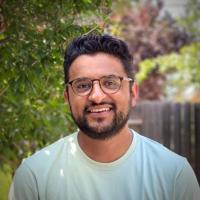
Luis Diaz-Garcia was recently appointed as an Assistant Professor and Grape Breeder in the Department of Viticulture and Enology at UC Davis. Luis grew up in Aguascalientes, Mexico, a state previously recognized as one of the most important wine-growing regions in the country. He completed his bachelor's and master’s degrees in Agronomy at Universidad Autonoma Chapingo and CINVESTAV-LANGEBIO, respectively. In 2018, Luis obtained his Ph.D. in Plant Breeding and Plant Genetics at the University of Wisconsin-Madison, working in the laboratory of Juan Zalapa. During his Ph.D., Luis integrated a variety of phenomics and genomics tools for studying cranberry fruit quality traits and their underlying genetic mechanisms. Then, in 2018, Luis joined INIFAP Mexico as a lead scientist, where he worked in several crops, including maize, chili pepper, and guava.
At UCD, the Diaz-Garcia lab (https://diazgarcia.github.io) will apply novel phenomics and genotyping approaches for accelerating the breeding of wine grapes and rootstocks. Genetic solutions for growing high-quality grapes under current and future climate challenges are likely hidden in the germplasm collections made by previous grape breeders at UC Davis. Therefore, the primary goal in the Diaz-Garcia lab is to find these genetic solutions and identify optimal ways to express and combine them to develop superior winegrape cultivars and rootstocks. Moreover, the Diaz-Garcia lab will implement cutting-edge strategies for gathering high-dimensional, high-quality information at the vineyard, vine, and organ levels, which will be integrated with genomic data to identify genes associated with relevant traits. All combined, these methods will allow the optimal allocation of resources and acceleration of the grape breeding process.
Alyssa Griffin
Assistant Professor, Earth and Planetary Sciences
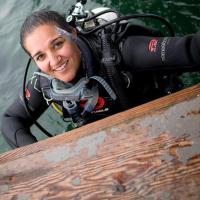
Griffin is a marine biogeochemist researching carbon cycling in coastal ecosystems and working towards a more just, equitable and inclusive earth science community. She has spent the last two years as a UC Davis Chancellor’s Postdoctoral Fellow splitting her time between Davis and the Bodega Marine Lab. Dr. Griffin’s research bridges geochemistry, biomineralization, and climate change, working on questions of biomineralization and the marine carbon cycle, mineral precipitation/dissolution dynamics under conditions of changing ocean chemistry, carbon storage in ocean systems (blue carbon) and climate mitigation strategies, the interactions of sediment biogeochemistry and carbonate mineralogy, and human relationships with earth systems. Her work also includes developing climate solutions that promote sustainability and environmental justice. Griffin has an outstanding record of working to attract and support minoritized scientists and has received multiple awards for this work including a UC San Diego-wide Inclusive Excellence award, and she co-developed an initiative to increase diversity in the scientific diving program at Scripps Institution of Oceanography.
Alan Lombard
Assistant Professor, Biochemistry and Molecular Medicine and Urologic Surgery
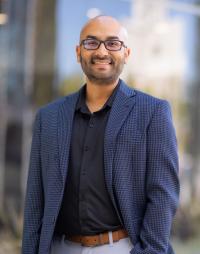
Alan Lombard is a recently appointed Assistant Professor focused on identifying and targeting the mechanisms of prostate cancer progression, with the goal of enhancing therapeutic efficacy and designing novel strategies to improve patient outcomes. Alan received his bachelor’s degree from Rensselaer Polytechnic Institute and his doctorate from UC Davis studying in the lab of Maria Mudryj where he studied mechanisms of progression of both prostate and bladder tumors. Alan remained at UC Davis after graduation and went on to specialize in prostate cancer as a postdoctoral scholar in the lab of Allen Gao and now he likes to say that he’s becoming an “Aggie lifer.” Through the support of the UC Davis family, Alan has won several awards, including a Department of Defense postdoctoral training fellowship and most recently, a K01 career development award from the NCI. As a CAMPOS scholar, Alan is excited to pay it forward working not only to better understand cancer and its treatment, but also to train the next generation of diverse scientists. The Lombard Lab employs a multi-pronged strategy including 1) development and utilization of in vitro and in vivo models, 2) molecular/cellular biological, biochemical, and omics approaches, and 3) bioinformatics to understand the underlying mechanisms of tumor biology and response and resistance to therapy. The lab’s goal is to incorporate novel findings into the design of efficacious treatments.
María Maldonado
Assistant Professor, Plant Biology
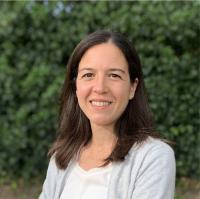
Maldonado's research focuses on understanding the respiratory chains of photosynthetic organisms. She undertook postdoctoral research at MCB UC Davis with Dr James Letts, where she studied respiratory complexes and supercomplexes of mung bean and Tetrahymena using biochemical and cryoEM approaches. During her PhD, she studied the regulation of chromosomal segregation in mammalian cells with Dr Tarun Kapoor at the Rockefeller University. She holds undergraduate and postgraduate degrees in biochemistry and biotech commercialization from the University of Cambridge. María also worked in the consulting and financial industries for several years between her PhD and postdoc.
Adeola Oni-Orisan
Assistant Professor, Family and Community Medicine
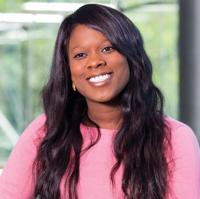
Adeola Oni-Orisan is a medical anthropologist and family physician whose research engages critical race theory, Black feminist studies, and science and technology studies to examines how ideas about Blackness, gender, and health are reinforced, deployed and resisted in struggles for health and well-being. She has conducted research on issues related to reproductive health in Nigeria, Zambia, and the United States. Her book project, "To Be Delivered: Pregnant and Born Again in Nigeria" is an ethnographic and historical exploration of the lived experiences of pregnant Nigerians as they navigate intersecting yet competing systems of care proposed by state, church, and international development organizations in search of successful deliveries.
Kenjiro W. Quides
Assistant Professor, Microbiology and Molecular Genetics
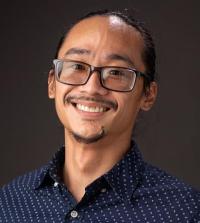
Dr. Kenji Quides is a microbial evolutionary ecologist with broad interests in microbial symbioses. As an Assistant Professor of Teaching, he consistently draws from his research background studying the legume-rhizobium symbiosis. From conceptually thinking about cooperation, to the various ways microbes impact our daily lives, his research background remains influential in his approach to education. At UC Davis, Dr. Quides will continue his passion for teaching and mentorship that accelerated as a teaching and research postdoctoral fellow in the Grand Challenges Initiative at Chapman University (2019-2022). There he taught project-based learning courses, which gave him an appreciation for innovative curriculum development that positively impacts students from diverse backgrounds.
2021-2022
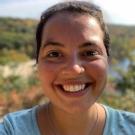
Anya Brown
Assistant Professor, Evolution and Ecology, Bodega Marine Lab
Brown’s research combines ecological experiments with genetic analysis of microbiome composition using DNA sequence data to test the indirect effects of microbes in modulating host phenotypes.
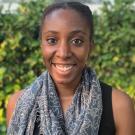
Kristen George
Assistant Professor, Public Health Sciences
George is an epidemiologist whose research focuses on racial/ethnic disparities in lifecourse cardiovascular disease (CVD) risk factors and their contributions to disparities in cognitive impairment and aging, particularly among Black Americans. Her project assessing adolescent and early adulthood CVD risk factors and late life cognition in an all-Black cohort of older adults, the first study to do this, was featured at the Alzheimer’s Association International Conference in July of 2020.
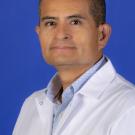
Marco I. González
Associate Professor, Neurology
González's research focuses on the molecular mechanisms of epileptogenesis to develop disease-modifying therapies to prevent epilepsy. Before joining U.C. Davis, Dr. Gonzalez was an Associate Professor at the University of Colorado in the Department of Pediatric Division of Neurology.
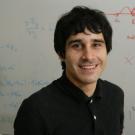
Joseph Teran
Professor, Mathematics
Teran is a world leader in computational mathematics, using novel, physically accurate, numerical methods to simulate the motion of materials in complex situations such as snow in avalanches, baking bread, and virtual surgery. His research creates tools for scientists, movie animators, and surgeons to visualize (in real-time) physical systems with a level of detail and accuracy that was previously impossible.
2020-2021
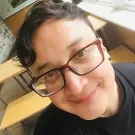
Jairo Fúquene Patiño
Assistant Professor, Statistics
Fúquene-Patiño research focuses on developing methods and computationally scalable approaches for a variety of data-driven problems with an emphasis on Bayesian model selection, Weakly Informative Priors and Bayesian modeling with extreme values, in conjunction with applications to economic time series, Functional magnetic resonance imaging (fMRI), clinical trials, environmental data, survey sampling data among others.

Theanne N. Griffith
Assistant Professor, Physiology and Membrane Biology
Griffith is a neuroscientist interested in the molecular mechanisms underlying thermal sensations in both health and disease. Her current work combines electrophysiology, transgenic mouse models, and behavioral studies to investigate how cold sensation is encoded in peripheral sensory neurons. She is also interested in the mechanisms underlying neurological complications in sickle cell anemia, in which cold-induced pain crises are a prominent pathological feature.
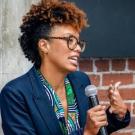
Tiffani Johnson
Associate Professor, Emergency Medicine
Johnson’s research portfolio reflects her commitment to improving the quality of care for underserved children. Her interdisciplinary research program is focused on race and racism and its impact on child health. She is currently exploring root causes of inequities in the healthcare and early childhood education settings, including research on racism and bias and its impact on the health and well-being of children.
2019-2020
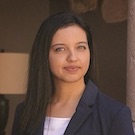
Maciel Hernández
Assistant Professor, Human Ecology
Maciel M. Hernández investigates the development of children’s emotion, regulatory, and academic behaviors, with a focus on social and cultural processes that promote resilience in Latino children. Dr. Hernández is a Ronald E. McNair Scholar and an AERA-SRCD Early Career Research Fellow in Middle Childhood Education and Development. She received a Ph.D. from the University of California, Davis and completed a postdoctoral fellowship in the Department of Psychology at Arizona State University.
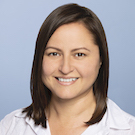
Madeline Nieves-Cintrón
Assistant Professor, Pharmacology
Dr. Nieves-Cintron is an Assistant Professor in the Department of Pharmacology at UC Davis, she employs a multiscale approach to study mechanisms regulating vascular function in health and disease.
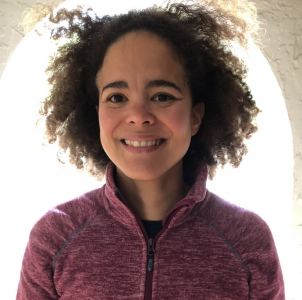
Jasquelin Peña
Associate Professor, Civil and Environmental Engineering
Peña's research lies at the intersection of natural, managed and engineered ecosystems and aims to advance sustainable solutions to environmental quality problems. She is teaching two existing courses in the department and developing a new graduate course on applying water chemistry to solve environmental pollution problems. Her research has significant relevance to contaminant cycling, the biogeochemical pathways by which metals and metalloids are transformed and moved through various states by geological and biological processes. In addition to improving water quality in ecosystems degraded by human activities and by climate change events, she also seeks to improve the livelihood of disadvantaged communities that are often disproportionately impacted by environmental pollution.
Crystal D. Rogers
Associate Professor, Anatomy, Physiology & Cell Biology
Crystal D. Rogers is an Assistant Professor in the Department of Anatomy, Physiology, and Cell Biology in the School of Veterinary Medicine. Her lab studies vertebrate embryonic development, and is interested in identifying the molecular mechanisms that drive the formation of stem-like neural crest cells, which form the craniofacial bone and cartilage, peripheral nervous system, and skin pigment among other cell types. She received her PhD from Georgetown University, and completed her postdoctoral training at the California Institute of Technology. Prior to coming to UC Davis, she was a faculty member at California State University Northridge.
Fernanda S. Valdovinos
Associate Professor, Environmental Science and Policy
Valdovinos studies the structure and dynamics of biological communities using ecological networks, mathematical models, and empirical data. In addition to developing predictive understanding of natural ecosystems, she also asks more applied questions on how ecosystems respond to anthropogenic impacts including species invasions, local extinctions, climate change, and overfishing. Prior to UC Davis, Valdovinos was a faculty member (2018-2020) in the University of Michigan at the Department of Ecology & Evolutionary Biology and the Center for the Study of Complex Systems. More information about the Valdovinos Lab at https://www.fsvaldovinos.com/
2018-2019 Cohort
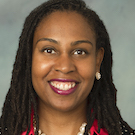
Fawn A. Cothran (Emerita)
Assistant Professor, Family Caregiving Institute, Betty Irene Moore School of Nursing at UC Davis
Fawn A. Cothran is an assistant professor in the Family Caregiving Institute at the Betty Irene Moore School of Nursing at UC Davis. She works to advance the vision of Family Caregiving Institute to support health and well-being for persons with chronic and serious illnesses as well as their family and caregivers, with an emphasis on older adults.
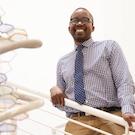
Wilsaan Joiner
Professor, Neurobiology, Physiology, and Behavior, College of Biological Sciences; Neurology, School of Medicine
Wilsaan Joiner studies how we use different sources of information to aid behavior, ranging from visual perception to movement planning and updating. Specifically, his laboratory is interested in how external and internally-generated sensory information is integrated in healthy individuals, in comparison to certain disease and impaired populations (e.g., Schizophrenia and upper extremity amputees). He received his PhD in Biomedical Engineering from the Johns Hopkins University School of Medicine, and completed his postdoctoral training at Harvard University and the National Eye Institute. Prior to UC Davis, he was a faculty member in the Bioengineering department at George Mason University.
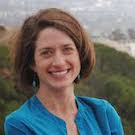
Rose Kagawa
Assistant Professor, Emergency Medicine, Violence Prevention Research Program, School of Medicine
As a social epidemiologist, Rose Kagawa uses impact evaluation and causal inference methods to understand the causes, consequences, and prevention of violence and firearm violence. She is particularly interested in social and environmental interventions on health, including urban decay remediation in high crime areas and poverty reduction interventions. Dr. Kagawa received her PhD in Epidemiology and her Masters in Public Health from the University of California, Berkeley.
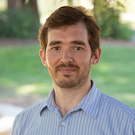
James A. Letts
Associate Professor, Molecular and Cellular Biology
James’ research program focuses how the body converts energy from the food that we eat into a form that can be used by cells across many essential processes. He seeks to characterize the structures and functions of important membrane proteins involved in energy conversion in order to learn about how they work and how their dysfunction results in disease.
2016-2017 Cohort
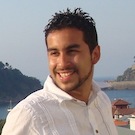
Samuel Díaz-Muñoz
Assistant Professor of Microbiology and Molecular Genetics
Sam Díaz-Muñoz studies the social lives of viruses. His research focuses on the evolution, ecology, and molecular mechanisms of virus-virus interactions using genomics, experimental evolution, and environmental microbiology. He received his Ph.D. at the University of California, Berkeley and postdoctoral training at the University of California, San Diego. Prior to UC Davis, he was a Faculty Fellow at New York University.
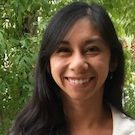
Marie Cuevas Heffern
Assistant Professor, Chemistry
Marie’s research program seeks to define and control the unique and dynamic chemistry of transition metals in biology from the molecular level to the whole animal. She seeks to investigate the bioinorganic chemistry of hormones in area of research that she terms “metalloendocrinology”. Understanding the influence of metals in facilitating and disturbing this biochemical balance will impact approaches to diet, pharmacology, and toxicology as they apply to endocrine disorders spanning diabetes, liver disease, and cancer.
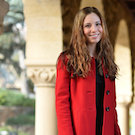
Rebecca Hernandez
Associate Professor, Land, Air and Water Resources
Dr. Rebecca R. Hernandez is Assistant Professor in the Department of Land, Air, and Water Resources. Dr. Hernandez earned her Ph.D. in Earth System Science from Stanford University, a M.S. in Biological Science from CSUF, and earned a degree in Geography from UCLA. Her research foci includes the study of ecology, energy, and global environmental change particularly in water-limited ecosystems and human environments.
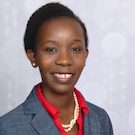
Maureen Njoki Kinyua (Emerita)
Assistant Professor, Civil and Environmental Engineering
Maureen Njoki Kinyua is an Assistant Professor in the Department of Civil and Environmental Engineering. Her research focuses on livestock, human and solid waste treatment and nutrient and energy recovery for communities, especially those in developing countries. This research assists in improving their public health, environmental and economical status which concurrently increases their quality of life. She received her PhD from University of South Florida in Tampa, FL and did her post doctoral research at Columbia University.
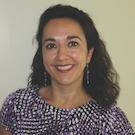
Verónica Martínez-Cerdeño
Professor, Pathology and Laboratory Medicine
Verónica’s goal is to determine the etiology and the pathology of autism spectrum disorders. She also studies the role of stem cells in the development, evolution, and pathogenesis of mammalian cerebral cortex. Her laboratory studies autism in the postmortem brain with the goal of discovering new treatments for autism. Verónica trained at the Complutense and Autónoma Universities in Madrid, and at Columbia University, UCSF, and UC Davis.
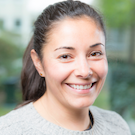
Verónica L. Morales
Associate Professor, Civil and Environmental Engineering
Verónica L. Morales is an Assistant Professor in the Department of Civil and Environmental Engineering. Her work is driven by interest in discovering physical and chemical processes at the micro-scale that control macro-scale transport and long-term fate of contaminants in soils and groundwater. She received her PhD from Cornell University and was a Marie Curie Postdoctoral Fellow at ETH Zurich.
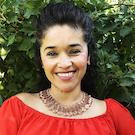
Miriam A Nuño
Professor, Public Health Sciences
Miriam’s research interests focus on the design and analysis of observational studies, primarily in the context of public health research. Her research emphasizes on three areas: comparative effectiveness research in cancer, causal inference methods, and application of mathematical models with observational data for the prediction of patient outcomes. In collaboration with surgeons, radiation oncologists, and neurologists, Miriam’s work aims to provide outcomes, quality of life and access to care for patients diagnosed with cancer and other conditions
Kara Rudolph (alumna)
Assistant Professor, Emergency Medicine in the Violence Prevention Research Program
Kara Rudolph is a social epidemiologist who applies and develops causal inference methods to studying social and contextual influences on mental health, substance use, and violence. She received her PhD in Epidemiology and Masters in Biostatistics from Johns Hopkins University.
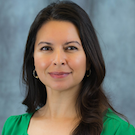
Jeanette Ruiz
Lecturer with Potential for Security of Employment of Communication
Jeanette Ruiz is a Lecturer (LPSOE) for the Department of Communication at UC Davis. She specializes in strategic communication with a specific interest in emerging practices and concepts in digital and social media. In addition to her appointment in the Department of Communication, she has served as a human resources and public relations consultant for various nonprofit, managed health care and finance organizations. Dr. Ruiz’s research focuses on public health communication and the Internet.
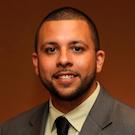
Jesús M. Velázquez
Associate Professor, Chemistry
Jesús M. Velázquez is an Assistant Professor in the Department of Chemistry at UC Davis. He’s currently developing a research program centered on the rational design of well-defined materials at the meso and nanoscale. The target materials have immediate applications in nanoelectronics, energy conversion devices and environmental remediation.
2015-2016 Cohort
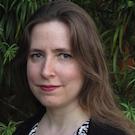
Natalia Caporale
Associate Professor and Lecturer with Potential for Security of Employment of Neurobiology, Physiology and Behavior
Natalia Caporale was born in Argentina, where she conducted her undergraduate studies in Biology at the prestigious Universidad de Buenos Aires. She then came to the US to pursue her PhD in Neuroscience at UC Berkeley, where she conducted research into the cellular and circuit mechanisms of learning and memory in Dr. Yang Dan’s lab. While at Berkeley, Dr. Caporale was awarded the HHMI Predoctoral Fellowship (2002-2007), and also several awards for her teaching and dedication to her students.
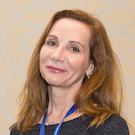
Fernanda Ferreira
Professor, Psychology
Fernanda Ferreira was born in Portugal and raised in Winnipeg, Canada. She received her Bachelors degree (Honours) from the University of Manitoba in Winnipeg, Canada, a Masters in Linguistics and another in Cognitive Psychology from the University of Massachusetts, Amherst, and a Ph.D. in Cognitive Psychology in 1988 from UMass. Before coming to UC Davis, she was a member of the faculty at Michigan State University and at the University of Edinburgh.
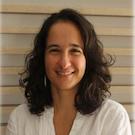
Juliana Maria Leite Nóbrega de Moura Bell
Associate Professor, Food Science and Technology
Dr. de Moura Bell holds a Ph.D. in Food Technology from the State University of Campinas (UNICAMP), Sao Paulo, Brazil. She completed her Ph.D. training in France at the European Institute of Membrane (IEM) and Agricultural Research for Development (CIRAD) where she worked on the enzymatic synthesis of structured lipids and its purification by the use of membrane filtration and supercritical carbon dioxide extraction (SCCO2).
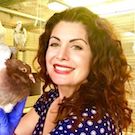
Rebecca M. Calisi Rodríguez
Associate Professor, Neurobiology, Physiology and Behavior
Rebecca Calisi Rodriguez studies how hormones in the brain stimulate and inhibit sexual behavior and reproduction. She received her Ph.D. from the University of California, Berkeley, and was previously faculty at Barnard College of Columbia University. Dr. Calisi Rodriguez originally attended college to study studio art and theater. An interesting turn of events and serendipitous exposure to inspirational scientists led her to become a neurobiologist.
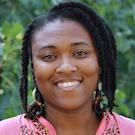
Alexis Patterson
Associate Professor, Elementary Science Education
Patterson's research lies at the intersection of equity studies, social psychology, and science education. Recent projects have focused on equity issues that arise when students work together on group projects in science and the role social-emotional skills play in facilitating equitable interactions between students. Driving her research is the desire to study the challenges facing those in the field of science education in order to reframe science learning in terms of diversity and access.
2014-2015 Cohort
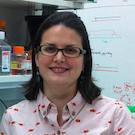
Jacqueline Barlow
Associate Professor, Microbiology and Molecular Genetics
Dr. Barlow is a biologist who studies the etiology of DNA damage and mechanisms for its repair.
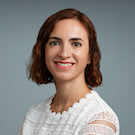
Magdalena Cerdá (alumna)
Associate Professor, Emergency Medicine and Violence Prevention Research Program
Dr. Cerdá is a social epidemiologist who addresses the social and structural determinants of health, including such important problems as violence, substance abuse, and mental illness.

Lillian Cruz-Orengo
Associate Professor, Anatomy, Physiology and Cell Biology
Cruz-Orengo studies rodent models of neurological disorders, including trauma, chronic pain, and inflammatory-induced neurodegeneration.
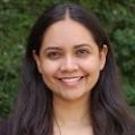
Cindy Rubio González
Associate Professor, Computer Science
Rubio Gonzalez is a software engineer who focuses on developing and applying program-analysis techniques to make software more reliable.
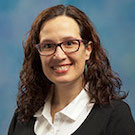
Anna La Torre
Associate Professor, Cell Biology and Human Anatomy
La Torre combines molecular and cellular biology, stem cells, and mouse studies to study neuronal development.
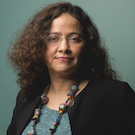
Mariel Vazquez
Professor, Mathematics and of Microbiology and Molecular Genetics
Vazquez is a mathematical biologist with a specialization in the applications of topology to the study of DNA.

